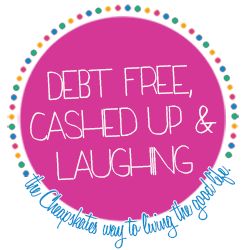Margaret wrote "Cath, I love your email every week but wonder if the buying of only generic brands is hurting Australia's economy. I try and buy Australian products all the time even if it costs a little more. I really like to see my money kept in my country."
Margaret raises a good point, although just because something is Australian made doesn't mean her money is kept here, and just because it's a generic product doesn't mean it isn't.
There are a lot of generic products made in Australia. And there are a lot more "Australian made" products that are made from imported materials or ingredients that we could well manufacture or produce here, or by foreign owned companies.
We all want a stronger economy and supporting our local businesses makes sense.
Sadly though a lot of what we have come to recognise as Australian isn't any more. Many of our favourite brands are owned by foreign owned companies. This means that at the very least the profits go - yep - overseas. They don't stay in Australia.
For us as consumers to support Australian industry we need to first buy from Australian owned companies, then look for products that are Australian made by Australian owned companies, then look for products from Australian owned companies, that are Australian made from Australian materials and ingredients.
That is not always easy. We live in a country of plenty, and compared to many countries excess, but there are many, many families and individuals in our country who simply don't enjoy a life of plenty, and excess exists only in their imaginations. They are on limited incomes and very tight budgets.
We can take the moral high ground and say that we will only buy 100% Australian products and be happy to pay a little bit more, but for many shoppers that high ground, no matter how desirable, simply isn't a realistic proposition.
Dick Smith Foods ran a campaign asking shoppers to pay just 30 cents more and choose Australian grown and processed beetroot. And 30 cents isn't a lot.
But when you multiply that 30 cents an item over the average grocery basket it adds up. And that's when buying Australian grown, manufactured, processed or owned becomes almost impossible for low and limited income Australians.
We should all, as citizens, aim to buy Australian first and it should always be our preference if circumstances allow.
But we also need to remember that unless we are walking in others' shoes, we have no understanding of their life challenges and reasons for shopping as they do.
Below is a copy of an article from the August 2011 Cheapskates Journal, where Lynne Wilkinson from Ausbuy talks about buying Australian owned and made on a tight budget.
How to Buy Australian and Feed the Family for Under $100 a Week
Platinum Cheapskater Janine Benson asked the question "How do we shop like a Cheapskater and still keep Aussies in a job? A lot of the generic brands are from imported products or made overseas! There are folk in regional Victoria that will be without jobs soon as Heinz are closing down and we have lost jobs in Cobden and Simpson with dairy companies closing."
It may seem like an impossible task, but it can be done. Remember back to when you were a new Cheapskate, how you thought you'd never be able to get the grocery bill down to $300 a week, or $200 a week and $100 a week was the impossible dream? And then you started to shop smarter, and your attitude changed. Before very long that grocery bill was coming down.
I know it can be done, but so you can be sure it is possible, I went straight to the expert, Lyn Wilkinson, CEO of AUSBUY.
" One hundred dollars a week for four people is just $14 a day" said Lyn. "When we change our buying behaviour, think more about what we eat and connect more with our food it can be done. Big Macs might be appealing but do not give the nourishment that is required and while the cost of a Big Mac at $3.95 might appeal with the right planning you can feed a family of four on this amount. "
Lyn says the concept that Australian products are more expensive is a misnomer. AUSBUY has done shopping comparisons and found that Australian products are cheaper, better quality and better value for money than many foreign products.
In recent years there has been a big push by retailers to sell “private label” products at prices below the other market brands, but with price goes quality and products are sourced overseas which are often grown in conditions which are not allowed in Australia and hence do not offer the same nutritional value. Cheap does not equate to good value.
There are a few issues to consider when feeding a family and supporting Australian farmers, manufacturers and retailers.
1. The number of food programmes as entertainment on TV is amazing, and indicates that people are losing cooking skills and connection with growing food which is fundamental to life.
a. These programmes often show ways to turn basic food into imaginative meals.
b. In a family try to encourage the younger members to participate in the food preparation – peel, mash, set the table, butter the pan etc.
c. Make each meal an event where the family gathers and the TV is turned off.
2. The more food preparation people do at home the more value they add and can get better quality, healthier food.
a. If it did not grow in the earth, walk or swim then avoid it as it was manufactured with laboratory skills.
3. Learn to read labels – just because a label says it is healthy is not necessarily true. Low fat means high sugar and vice versa.
a. Some processed foods are necessary in a diet – but be aware that some cereals use copious amounts of sugar while others use fruit to flavour the cereal.
b. Always check where the food comes from – if it is not labelled product of Australia or made from local ingredients or local and imported ingredients then you do not know where the food has come from or the where country of origin is.
4. Good planning and use of fresh food helps to spread a budget and to ensure long term health.
a. Prepare meals in bulk so that meals are put into the freezer for a week or two.
b. This means there is more variety in the menu each week.
5. Better to buy fresh in season and make sure the fresh food is Product of Australia – it has not travelled far and supports our farmers.
6. Packaged goods are an expensive way to buy food, they offer convenience but are not the most economical or healthful way to shop.
7. Many AUSBUY members position their products at the quality end with focus on nutrients and locally sourced ingredients.
a. Some of the well known foreign brands often use imported ingredients instead of local ingredients and often have high sugar levels or preservatives etc.
8. Some simple meal ideas:
a. Foods which are in season are more plentiful and therefore cheaper.
b. It might take some effort, but a kilo or two of fresh apples and pears then cut up and cooked make a great breakfast or dessert and there is enough for a couple of weeks.
c. Meat can be a special treat, even cheaper cuts which are lean are full of flavour and can go further when lots of vegetables are added. Slow cooking brings out the flavours.
d. Winter is a great time for hearty soups and vegetable soups using dried peas and chick peas to thicken it with home made bread or drop scones
e. Sunrice Australian grown rice, pumpkin and an orange are the basis for a pumpkin risotto, add fresh herbs and Pantalica parmesan.
f. Buy Australian dairy products when on sale – Bega cheese can last for weeks when the pack is open and can be grated on potatoes and milk to form a potato bake.
g. Set up a fresh herb garden – friends may offer cuttings – and use these to add flavour and decorate your meals – rosemary is easy to grow, marjoram, oregano and mint all last for several seasons.
h. Keep some basic foods in the pantry such as Buderim Ginger Lime and Ginger Marmalade – a teaspoonful adds flavour to meat and fish dishes when added to the pan or to vegetables in the wok.




















.jpg)



No comments:
Post a Comment
Thanks so much for taking the time to leave a comment...I just love hearing from you!
Just a couple of things:
Please don't use your comments to advertise your business or goods for sale, any such comments will be removed.
And please include your name, ANONYMOUS POSTS WILL NOT BE PUBLISHED AND WILL BE RECORDED AS SPAM.